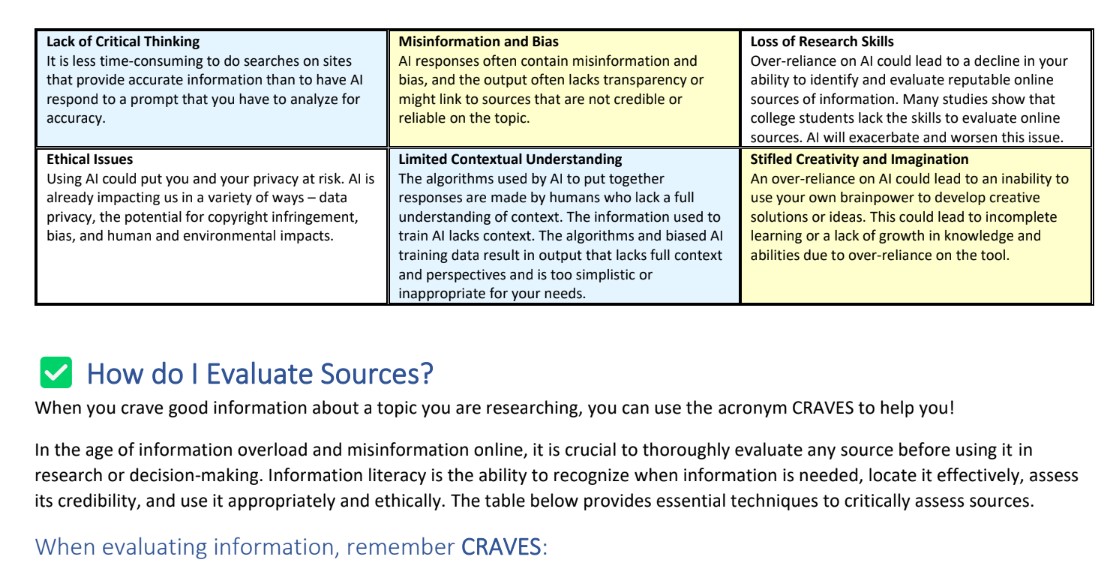Can I use AI for research?
Why Can’t I Just Use AI to Search for Information?
Generative AI tools like ChatGPT, Claude, Bard, Perplexity.ai, Bing, and other chatbots can be very helpful in many respects, but sometimes they can get it wrong. A chatbot is like a smart friend who has deep knowledge about some topics and lacks knowledge about other important topics, concepts, ideas, and perspectives. Your smart friend might offer excellent information on the topic they know deeply but might offer inaccurate or biased information about other topics with unearned confidence. AI is the same way.
Chatbots offer answers to our prompts that may or may not be accurate, so they require additional analysis and evaluation. It is less time-consuming to find the right sources of information and search for the information you need there first. Other reasons not to rely on AI as a first stop for information gathering:



10 ChatGPT prompts for reading and analysing academic papers
10 ChatGPT prompts for reading and analysing academic papers by Vugar Ibrahimov on Medium. Read more articles by Vugar Ibrahimov on Medium.
More AI research information and tips on Substack:
Era of the research bots by Razia Aliani

AI tools for research
Scite.ai
Assistant by scite gives you the power of large language models backed by our unique database of Smart Citations to minimize the risk of hallucinations and improve the quality of information and real references.
Use it to get ideas for search strategies, build reference lists for a new topic you're exploring, get help writing marketing and blog posts, and more.
Supercharge GPT with Scholar.ai
10 AI tools to improve academic workflows
Lennart Nacke and Vugar Ibrahimov discuss their favourite AI tools that can enhance academic workflow, providing information for how each tool is used.

Here are some which may be useful for secondary school students:
Perfect for initial literature searches, Consensus gives quick summaries and references, making it ideal for kick-starting any research project. See videos below.
Jenni AI stands out as a co-writing assistant. It had a steep learning curve, but once you get used to it, the tool can be a great companion. It’s perfect for breaking the blank page syndrome and offers a conversation-like interface to help you develop your writing.
PaperPal comes in handy when working in Word. It offers paraphrasing options and gives writing suggestions that can make your work more fluid and concise. It's a lifesaver when dealing with Word documents.
Otter.ai isn’t just for meeting transcriptions. With its Otter Bot feature, you can chat with your transcripts, making it perfect for lectures and notes review.
SciteAI brings smart citations and writing assistance to the foreground. It even narrows down sources into supporting, contrasting, or just mentioning—adding an extra layer of refinement to your research.
For those simple queries that need a refined touch, Perplexity replaces Google for many, giving AI-generated responses that are detailed and insightful.